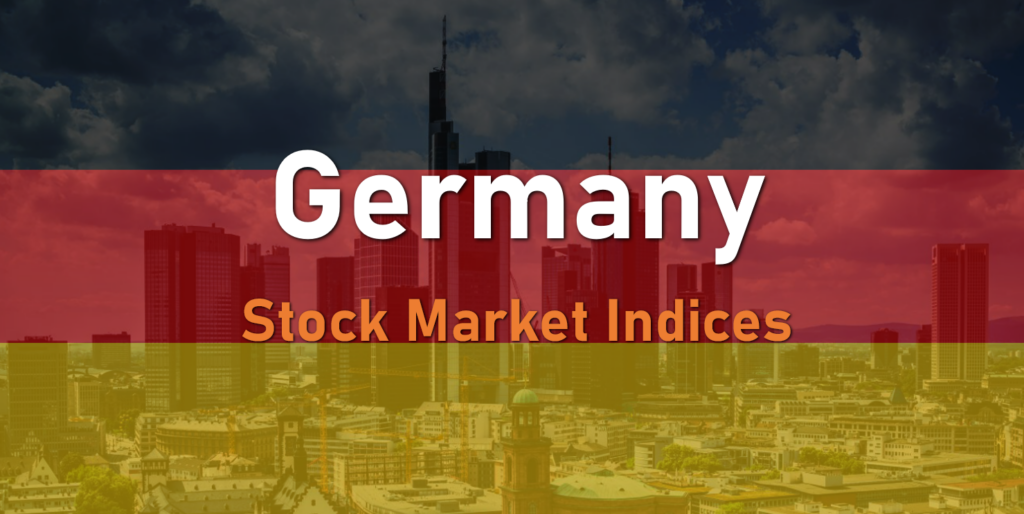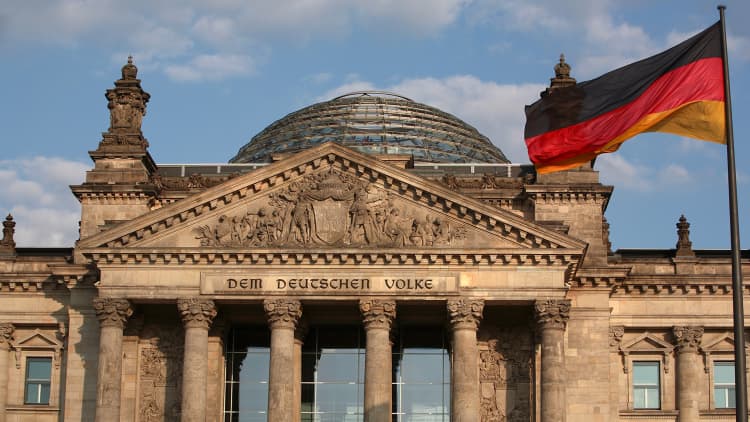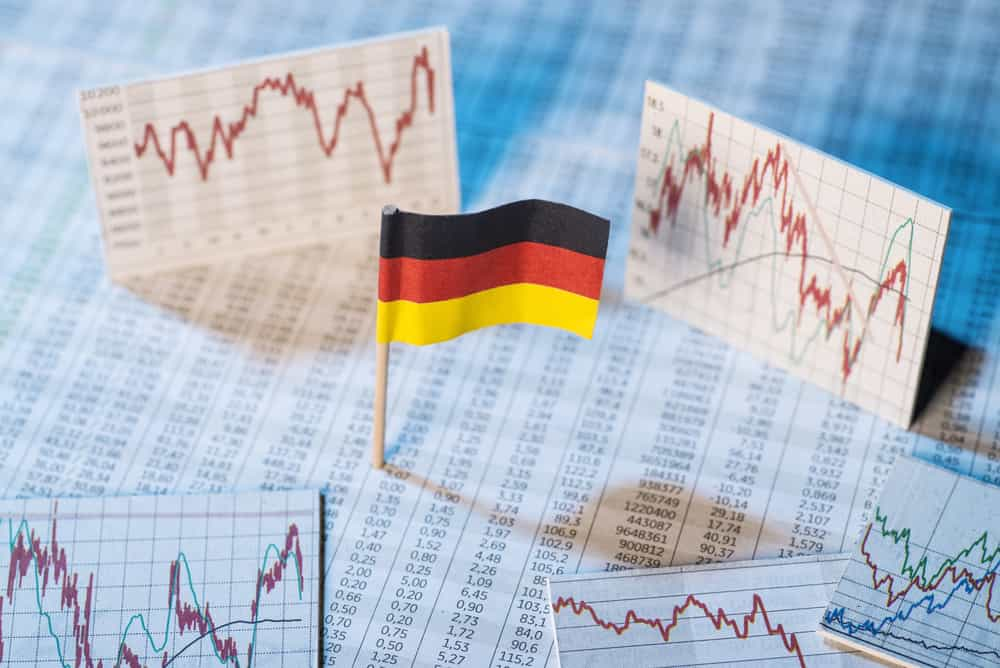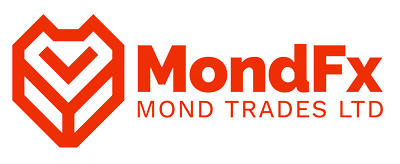Frankfurt Stock Exchange, one of the most important financial centers in the world, plays a key role in the economy of Europe and the world. This market, which dates back to the Middle Ages, today hosts large industrial and technological companies, and is considered an important index for measuring the economic status of Europe. Indices such as DAX show the performance of the German economy and to some extent Europe. With advanced trading systems and a focus on sustainable investments, the Frankfurt Stock Exchange provides diverse opportunities for global investors. This article examines the structure, indices and important points for investing in this important market.
History and antiquity of the Frankfurt Stock Exchange
1.1. Early roots and market formation
The roots of the Frankfurt Stock Exchange go back to the Middle Ages and trade fairs of the 11th century. In 1150 AD, the first written reference to the Frankfurt Autumn Fair is recorded on the Feast of the Assumption of the Blessed Virgin Mary. This exhibition, which probably started as an agricultural products market in the 11th century, was considered a turning point in the formation of commercial activities in the region.
Over time, Frankfurt became an important center for trade and monetary transactions. In 1330, Bavarian Emperor Ludwig granted the city the privilege of holding a spring fair, which further boosted trade. This event paved the way for a gradual transition from custom production of goods to mass production for wider markets.
1.2. Establishment of the Frankfurt Stock Exchange
The turning point in the history of the Frankfurt Stock Exchange was 1585. In this year, the merchants of Frankfurt came together to set uniform exchange rates for transactions. This action, which was aimed at combating financial abuse and fraud, is known today as the official starting point of the Frankfurt Stock Exchange.
Since then, a group of traders held regular meetings to update exchange rates. The German word “Börse” (equivalent to the French “bourse”) was first used in written documents in 1605 to describe these meetings.
In 1625, the first official price sheet was published, giving the average price of 12 currencies for the payment week following the fair. The oldest price sheet available from the Frankfurt Stock Exchange dates back to 1721, which included exchange rates for 16 types of coin.
1.3. Developments and important historical periods
During the following centuries, the Frankfurt Stock Exchange witnessed important developments. In 1666, the first rules and regulations of the stock exchange were compiled under the title “Regulations on Commercial Affairs and Exchanges”, which led to the creation of an official administrative system for the stock exchange. Initially, only bonds were traded on the Frankfurt Stock Exchange.
By the end of the 17th century, the business meetings, which were previously held in the open air in front of the town hall, were moved to the Grosse Braunfels building on Liebfrauenberg Square. This place, which was considered the most important and the largest building in the city, became a permanent gathering place for merchants since 1694.
In the 19th century, with the industrial development of Germany, the Frankfurt Stock Exchange also experienced significant growth. In 1820, the first stock company was admitted to this stock exchange, and by 1850, the number of admitted companies reached more than 100.
The 20th century was a period of major challenges and developments for the Frankfurt Stock Exchange. After the damage caused by the Second World War, this stock exchange was reopened in 1949 and played an important role in the economic reconstruction of Germany. In the 1990s, with the advent of new technologies, the Xetra electronic trading system was launched, which revolutionized the way trading was done.
Today, the Frankfurt Stock Exchange is known as one of the most important financial centers in the world. With a history of more than 400 years, the stock exchange not only symbolizes the rich history of business in Germany, but also continues to play a leading role in global financial markets through continuous innovation.

General structure of the German Stock Exchange (Frankfurt)
2.1. Main markets
2.1.1. Xetra
As the beating heart of the Frankfurt Stock Exchange, Xetra is a state-of-the-art electronic trading system launched in 1997. This platform, which accounts for more than 90% of all stock transactions in Germany, plays a vital role in the European capital market. Xetra has dramatically increased the transparency and efficiency of trading by providing direct market access to investors from around the world.
This system provides the possibility of trading about 1000 stocks, 1800 exchange-traded funds (ETF), exchange-traded commodities (ETC) and exchange-traded notes (ETN). With the participation of 170 participants from 16 different countries, Xetra is active from 9 am to 5:30 pm and ensures high liquidity for traders.
2.1.2. Börse Frankfurt
Börse Frankfurt The more traditional section of the Frankfurt Stock Exchange focuses on trading German and international securities. This department covers a wider range of securities by using experts on the trading floor. Börse Frankfurt includes 11,500 stocks, 29,500 bonds, 1,500 ETFs, 2,800 mutual funds and 1.37 million securities and warrants.
This market is active from 8 am to 8 pm and provides investors with various trading opportunities. By combining human expertise and advanced technology, Börse Frankfurt has created a suitable environment for more complex and lower-volume transactions.
2.2. Derivatives markets
2.2.1. Eurex
Eurex, one of the largest derivatives markets in the world, forms an important part of the structure of the Frankfurt Stock Exchange. Founded in 1998, this platform allows trading of all types of futures and options contracts. Eurex plays an important role in risk management and complex trading strategies by offering a variety of products including stocks, indices, interest rate and currency derivatives.
Using advanced technology, this market ensures high security and efficiency in transactions and is known as one of the most innovative derivatives trading platforms in the world.
2.2.2. Clearstream
Clearstream, the clearing and custody division of Deutsche Börse Group, plays a vital role in supporting the operations of the Frankfurt Stock Exchange. By providing post-trade services, including settlement, maintenance and collateral management for domestic and international securities, this system ensures the correct and safe execution of trades.
Covering more than 50 markets worldwide, Clearstream plays an important role in facilitating international capital flows and reducing operational risks in financial markets.
2.3. Other markets
2.3.1. Pre-Trading Market
The Pioneer Securities Trading Market provides an opportunity to trade securities before the official start of main trading hours. The market, which is usually active from the early hours of the morning, allows investors to react to overnight news and events. Transactions in this market can indicate the possible trend of prices during the trading day.
2.3.2. Over-the-counter (OTC) securities market
The over-the-counter (OTC) securities market at the Frankfurt Stock Exchange enables the trading of securities that are not admitted to official markets. This market creates a variety of opportunities for investors and companies by providing more flexibility in terms of transactions. OTC transactions typically involve smaller, less liquid, or more complex securities that may not be suitable for admission to mainstream markets.
Overall, the multi-layered and diversified structure of the Frankfurt Stock Exchange, with its combination of advanced electronic and traditional markets, provides market participants with a wide range of investment and trading opportunities. This complex structure, while meeting the diverse needs of investors and companies, plays an important role in maintaining the position of the Frankfurt Stock Exchange as one of the most important financial centers in the world.
Important indices of the German Stock Exchange (Frankfurt)
3.1. DAX index
The DAX (Deutscher Aktienindex) index, as the most important and well-known index of the Frankfurt Stock Exchange, plays a vital role in showing the German economic situation. Launched in 1988, the index includes the top 30 German companies traded on the Xetra market.
The DAX represents about 75% of the total value of the Frankfurt stock market and is considered the German equivalent of the Dow Jones index in the United States. The companies included in this index are selected from various industries such as automotive, banking, technology and pharmaceuticals. Some of the leading companies are: Volkswagen, Siemens, Allianz, Deutsche Bank and Bayer.
The calculation of the DAX index is based on the weighted average method of floating free market value, that is, companies with a higher market value have a greater impact on the index. To enter this index, companies must meet strict criteria, including at least three years of being on the stock exchange and having at least 15% of free floating shares.
3.2. MDAX index
The MDAX (Mid-Cap DAX) index represents 50 medium-sized (mid-market) companies on the Frankfurt Stock Exchange, which are immediately after the DAX companies. The index was launched in 1996 and covers companies ranked 31st to 80th in terms of liquidity and market size.
MDAX is often considered as an indicator to evaluate the performance of high-growth and high-potential companies. This index includes a diverse range of industries and can provide a more accurate view of the overall state of the German economy.
3.3. SDAX index
The SDAX (Small-Cap DAX) is an index that represents the 70 smaller (cap) companies that rank immediately behind the MDAX companies in terms of liquidity and market capitalization. Introduced in 1999, this index includes companies ranked 81 to 150 in terms of size and liquidity.
SDAX is often considered as an index for evaluating emerging companies with high growth potential. This index can provide valuable insight into the growing sectors of the German economy and is attractive to investors looking for long-term growth opportunities.
3.4. Other indices
In addition to the main indices mentioned, the Frankfurt Stock Exchange also has various other indices, each of which represents a specific part of the market:
TecDAX: This index covers the 30 largest technology companies that rank after the technology companies in the DAX.
TecDAX is an important measure to evaluate the performance of the technology sector in Germany.
HDAX: This index is a combination of companies in DAX, MDAX and TecDAX and includes a total of 110 companies. HDAX offers a more comprehensive view of the entire German stock market.
DAX 50 ESG: This newer index selects the top 50 German companies based on environmental, social and corporate governance (ESG) criteria and is designed for investors interested in sustainable investing.
4 EURO STOXX 50: Although not specific to the Frankfurt Stock Exchange, this index includes some of the largest German companies and is recognized as a benchmark for stock market performance in the Eurozone.
DAXGlobal Sarasin Sustainability Germany Index: This index evaluates German companies based on sustainability and social responsibility criteria.
This diversity in indices allows investors to pursue diverse investment strategies based on company size, specific industry or sustainability criteria. Also, these indicators are important tools for analysts and economists in evaluating the overall state of the German economy and various market trends.
In general, the various indices of the Frankfurt Stock Exchange provide a comprehensive and multidimensional picture of the German capital market and play an important role in guiding investment flows and economic decisions at the national and international levels.

How to invest in the German Stock Exchange (Frankfurt)
4.1. Choosing the right broker
Choosing the right brokerage is the first and most important step in investing in the Frankfurt Stock Exchange. For foreign investors, it is important to choose a broker that provides access to the German market. When choosing a broker, you should pay attention to the following:
Market Access: Make sure the broker allows trading on the Frankfurt Stock Exchange.
Fees: Check for transaction fees, account maintenance fees, and other possible fees.
Trading Platform: Look for a broker that offers a user-friendly and reliable trading platform.
Support services: Note that the broker provides support services in your language or in English.
Research and Analysis: Check if the broker offers analytical tools and research reports on the German market.
In choosing the right brokerage, it is very important to pay attention to the credibility and services provided. Meanwhile, MondFX is recognized as one of the top brokers for accessing international financial markets, including the Frankfurt Stock Exchange. Offering a user-friendly trading platform, competitive fees and professional support, this broker is a good choice for investors interested in the German market. For a safe and efficient international investment experience, consider using MondFX services.
Opening a trading account
After choosing the right brokerage, the next step is to open a trading account. This process usually includes the following steps:
Completing the online application form: This form will include your personal, financial and investment experience information.
Authentication: providing valid identification documents such as passport and residence address certificate.
Deposit: After account verification, you can deposit the desired amount to your trading account.
Note that some brokers may require a minimum balance to open an account.
Stock selection and make transactions
After opening and charging the account, you can start trading on the Frankfurt Stock Exchange:
Research and analysis: Before investing, research the companies and industries you are interested in. Use reliable sources such as company reports, industry analysis and economic news.
Stock selection: Choose the desired stocks based on your investment strategy and risk tolerance. You can use indices like DAX, MDAX or SDAX to find suitable stocks.
Place an order: Place a buy or sell order through your broker’s trading platform. You can use different types of orders such as limit order or market order.
Monitoring and managing your portfolio: After trading, check your investment performance regularly and rebalance your portfolio if necessary.
Costs and fees
Investing in the Frankfurt Stock Exchange requires the payment of certain costs and fees that must be considered:
Transaction fees: Every purchase or sale of shares is subject to a fee, which is usually calculated as a percentage of the transaction value or a fixed amount.
Account Maintenance Fees: Some brokers may charge a monthly or annual account maintenance fee.
Currency Conversion Fees: If you invest in a currency other than the Euro, you may be subject to currency conversion fees.
Tax: Income from investments in Germany is subject to tax. For foreign investors, the tax rate and payment method may be different and depends on the tax agreements between countries.
Note that fees can have a significant impact on your investment returns, so it’s important to compare the fee structure of different brokers and choose the most affordable option.
Investing in the Frankfurt Stock Exchange can provide attractive opportunities to diversify your portfolio and benefit from Germany’s economic growth. However, as with any investment, it is recommended to be aware of the risks, conduct careful research and consult with financial professionals before making any investment decisions.
Advantages and disadvantages of investing in the German stock market (Frankfurt)
Investing in the Frankfurt Stock Exchange provides significant opportunities for investors, but it also comes with challenges and risks. A comprehensive understanding of these pros and cons is essential for making informed investment decisions.
Advantages:
As one of the most important financial centers in Europe and the world, the Frankfurt Stock Exchange offers several advantages for investors:
Access to the powerful German economy: Investing in this stock exchange allows you to benefit from the economic growth and stability of the largest economy in Europe.
Industry Diversification: The Frankfurt Stock Exchange covers a wide range of leading industries such as automotive, technology, pharmaceuticals, and finance, which increases portfolio diversification.
High liquidity: The high volume of transactions in this exchange ensures adequate liquidity for large and medium stocks.
High regulatory standards: Strict rules and regulations provide more transparency and confidence to investors.
International investment opportunities: the possibility of investing in multinational companies and benefiting from the growth of the global economy.
Advanced trading infrastructure: Advanced trading systems like Xetra ensure high speed and efficiency in trading.
The possibility of investing in Euro currency: reducing currency risk for Euro zone investors.
Reliable indices: Indices such as DAX, MDAX and TecDAX provide reliable benchmarks for evaluating market performance.
Disadvantages:
Despite the many advantages, investing in the Frankfurt Stock Exchange comes with some challenges and risks:
Currency risk: For investors outside the Eurozone, exchange rate fluctuations can negatively affect investment returns.
Legal and tax complexities: Tax laws and investment regulations in Germany can be complicated for foreign investors.
Higher trading costs: Compared to some emerging markets, trading costs on the Frankfurt Stock Exchange may be higher.
Language limitations: Many company reports and information may only be available in German.
Cultural differences in business: Understanding German business culture can be challenging for foreign investors.
Sensitivity to European economic conditions: The German economy and, consequently, the Frankfurt Stock Exchange, are heavily influenced by the economic conditions of the entire European Union.
Competition with other financial centers: London and New York are still stronger financial centers that may take some investment opportunities away from Frankfurt.
Geopolitical risks: Political tensions in the European Union can negatively affect market performance.
All in all, investing in the Frankfurt Stock Exchange can provide attractive opportunities to diversify your portfolio and benefit from the economic growth of one of the world’s most powerful economies. However, investors should also consider the risks and challenges associated with this market. Doing detailed research, consulting with financial experts and having an investment strategy that fits your goals and individual risk tolerance are the keys to success in this market. Also, paying attention to global and regional economic trends, as well as political developments in the European Union, is essential for successful investment in the Frankfurt Stock Exchange.

Summary section
The importance and position of the Frankfurt Stock Exchange in the European economy
As one of the most important financial centers in Europe and the world, the Frankfurt Stock Exchange plays a vital role in the economy of the green continent. This stock exchange, located in the economic heart of Europe’s largest economy, acts as an economic thermometer not only for Germany, but for the entire Eurozone. Hosting some of the largest and most successful European and global companies, the Frankfurt Stock Exchange is a bridge between global investors and European economic opportunities.
The importance of this exchange can be seen in several key aspects:
Corporate financing: The Frankfurt Stock Exchange plays an important role in providing capital to German and European companies, which in turn contributes to economic growth and job creation.
Economic index: indices such as DAX are used as a benchmark to measure the economic health of Germany and to some extent Europe.
Attracting foreign capital: This stock exchange helps the inflow of capital to the European economy by attracting international investors.
Financial innovation: The Frankfurt Stock Exchange contributes to the development and evolution of European financial markets by providing innovative financial products and services.
The future and prospects of the Frankfurt Stock Exchange
The future of the Frankfurt Stock Exchange is facing many challenges and opportunities. Some of the trends and factors that can affect the future of this stock market are:
Digitization: Increasing the use of advanced technologies such as artificial intelligence and blockchain can increase the efficiency and transparency of transactions.
Focus on sustainability: Increasing attention to responsible and sustainable investments can lead to the creation of new products and indices related to ESG.
Global Competition: With increasing competition from Asian and American stock exchanges, the Frankfurt Stock Exchange needs to continuously innovate and improve its services.
Geopolitical developments: changes in the structure of the European Union and international relations can affect Frankfurt’s position as a financial center.
Mergers and Acquisitions: There is a possibility of merging with other European stock exchanges to increase global competitiveness.
However, given Germany’s strong infrastructure, continuous innovation and strong economic backing, the Frankfurt Stock Exchange is expected to remain one of the most important financial centers in the world.
Key points for successful investment in the Frankfurt Stock Exchange
For a successful investment in the Frankfurt Stock Exchange, it is necessary to pay attention to the following points:
Research and Education: A deep understanding of the market structure, rules and regulations, and companies listed on the Frankfurt Stock Exchange is essential.
Diversification: Using a wide range of industries and companies in the stock market to create a diversified and balanced portfolio.
Paying attention to indices: using indices such as DAX, MDAX and TecDAX to evaluate the overall performance of the market and its various sectors.
Knowledge of currency risks: For investors outside the Eurozone, currency risk management is particularly important.
Use of various financial instruments: Getting to know a variety of financial products such as ETFs, bonds and derivatives to optimize the investment strategy.
Monitor economic news and developments: pay attention to economic and political events in Germany and the European Union that can affect the market.
Long-term planning: adopting a long-term perspective in investing and avoiding emotional decisions based on short-term market fluctuations.
Finally, the Frankfurt Stock Exchange, with its rich history, advanced infrastructure and important position in the global economy, provides diverse opportunities for investors. By properly understanding the characteristics of this market, its risks and opportunities, and adopting smart strategies, investors can benefit from the benefits of investing in one of the most important financial centers in the world.
In the end, for successful investment in the Frankfurt Stock Exchange, it is very important to choose a reputable and reliable broker. Meanwhile, MondFX broker is known as one of the most reliable brokers for entering the international financial markets, including the Frankfurt Stock Exchange. This broker provides favorable conditions for investors by offering advanced trading platforms, competitive fees, and professional support.



